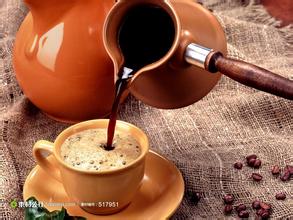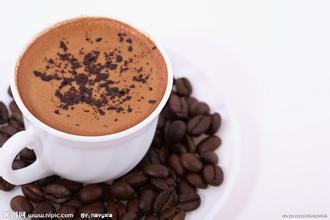Jamaica Cliff Estate Coffee Estate Flavor Features
The difference in transportation between Blue Mountain Coffee and other coffee is that it is transported in barrels with a capacity of 70 kilograms, a replica of Bonifieur barrels produced in Guadeloupe in the last century. The barrel was originally used to carry flour shipped from the United Kingdom to Jamaica, usually with a trademark and the name of the manufacturer. The Coffee Industry Council issues certificates for all authentic Jamaican coffee and bears a stamp of approval before export.
The Jamaican government used to insist that all Blue Mountain coffee is roasted in Jamaica to ensure that the quality remains the same. In fact, baking is a fine art, and it takes experience, training and expensive equipment to do a good job. From the consumer's point of view, coffee beans should be obtained and drunk immediately after baking. Coffee roasting in Jamaica is unlikely to meet this requirement. Now, raw coffee beans from Jamaica can be exported. Only coffee grown in the Blue Mountain area above 1800 meters above sea level can be called Blue Mountain Coffee. A coffee enthusiast whom the reporter knew in the United States was more "demanding". He insisted: "the coffee grown at an altitude of 2256 meters is Blue Mountain coffee." Coffee beans grown in the lower mountains of the island of Jamaica can only be named "Jamaican alpine coffee" because of their different qualities. In addition, the same coffee tree species, whether planted in Hawaii, Kenya, Papua New Guinea or anywhere else with a similar climate, cannot produce the flavor of blue mountain coffee beans.
Healthy black coffee
The earliest coffee on the island of Jamaica came from Haiti in Latin America in 1728. By 1790, some coffee farmers among the refugees in exile from Haiti had settled in the Blue Mountains and brought coffee-growing technology here. In 1838, Jamaica abolished slavery and allowed liberated slaves to cultivate their own land. Free slaves moved to the mountains to grow coffee and exported it to England. Coffee has come to be known for its admiration by the British upper class. This kind of coffee is the Blue Mountain Coffee that fascinates coffee lovers all over the world today. Blue Mountain Coffee is the most superior coffee in the world. Jamaica's weather, geological structure and topography provide an ideal place. The ridge that runs through Jamaica extends to the eastern part of the island, with the Blue Mountains rising to more than 2100 meters. Cool weather, foggy, frequent precipitation, use this rich soil Rain Water to reconcile. Here, a mixed planting method is used to grow coffee trees to accompany banana trees and avocado trees on terraces. Some small estates are also planted. But even the largest landowners in the region are small-scale growers by international standards, many of whom are small landowners whose families have been working for two centuries. The coffee industry in Jamaica faces a series of problems, such as the impact of hurricanes, increased labor costs and difficult mechanization of terraces. Many small estates and farms are difficult to rationalize.
As Japan has always invested in the Jamaican coffee industry, Blue Mountain Coffee is mostly owned by the Japanese, and they have also obtained the right of preemption of Blue Mountain Coffee. In 1992, Jamaica sold 688 tons of Blue Mountain coffee to Japan, 75 tons to the United States and 59 tons to Britain. 90% of Blue Mountain coffee is bought by the Japanese. Since the rest of the world can only get 10% of Blue Mountain, regardless of the price, Blue Mountain coffee is always in short supply.
Classified editing
There are three varieties of coffee in Jamaica:
Blue Mountain Coffee
(Jamaica Blue Mountain Coffee), of which Blue Mountain Coffee and Alpine Coffee are each divided into four grades. From top to bottom in terms of quality, NO.1, NO.2, NO.3 and PB,PB are round beans. According to CIB standards, only coffee grown above 666m above sea level is called Jamaican Blue Mountain Coffee.
Alpine coffee
(Jamaica High Mountain Supreme Coffee Beans) the coffee produced in the Blue Mountain area of Jamaica is called Alpine Coffee, which is second only to Blue Mountain Coffee in quality, and is called the brother breed of Blue Mountain Coffee by industry insiders. Jamaica Blue Mountain caffeine produces very little, so if you want to taste Jamaican flavor coffee, then Jamaican Alpine Coffee is your best choice.
Jamaican Coffee
(Jamaica Prime Coffee Beans). Coffee is grown outside the Blue Mountains and is called Jamaican coffee. It turns out that people in the coffee industry in China generally have a wrong understanding that only coffee grown in the Blue Mountains above 1800 meters above sea level can be called Blue Mountain Coffee. In fact, there is only one manor on the top of the Blue Mountains above 1800, that is, Amber, which is of Chinese descent. The owner of the manor is surnamed Lyn (Lin). Originally from Guangdong, China, the manor has a land area of only 30 hectares and its output is very small. Blue Mountain Coffee is mainly distributed in John Crow,St.John's Peak,Mossman's Peak,High Peak,Blue Mountian Peak and other five mountainous areas in the Blue Mountains.

Important Notice :
前街咖啡 FrontStreet Coffee has moved to new addredd:
FrontStreet Coffee Address: 315,Donghua East Road,GuangZhou
Tel:020 38364473
- Prev

Unique flavor of Jamaican coffee manor flavor and taste characteristics of Silver Mountain Manor
But by 1948, the quality of coffee had declined and Canadian buyers refused to renew their contracts, so the Jamaican government set up a coffee industry committee to save the fate of top coffee, and by 1969, the situation had improved. because the use of Japanese loans to improve the quality of production, thus ensuring the market
- Next

Introduction to the flavor and taste characteristics of coffee producing area of Valenford Manor in Jamaica
Because of its high price, Blue Mountain Coffee has a relatively fixed consumer group, and its market is mainly concentrated in Japan, followed by some European and American countries. Coffee beans are full in shape and slightly larger than ordinary beans. Its taste is very subtle, sour, fragrant, mellow, sweetness is uniform and strong, slightly bitter, harmonious taste, excellent flavor, suitable for individual coffee. It uses moderate.
Related
- Does Rose Summer choose Blue, Green or Red? Detailed explanation of Rose Summer Coffee plots and Classification in Panamanian Jade Manor
- What is the difference between the origin, producing area, processing plant, cooperative and manor of coffee beans?
- How fine does the espresso powder fit? how to grind the espresso?
- Sca coffee roasting degree color card coffee roasting degree 8 roasting color values what do you mean?
- The practice of lattes: how to make lattes at home
- Introduction to Indonesian Fine Coffee beans-- Java Coffee producing area of Indonesian Arabica Coffee
- How much will the flavor of light and medium roasted rose summer be expressed? What baking level is rose summer suitable for?
- Introduction to the characteristics of washing, sun-drying or wet-planing coffee commonly used in Mantenin, Indonesia
- Price characteristics of Arabica Coffee Bean Starbucks introduction to Manning Coffee Bean Taste producing area Variety Manor
- What is the authentic Yega flavor? What are the flavor characteristics of the really excellent Yejasuffi coffee beans?

